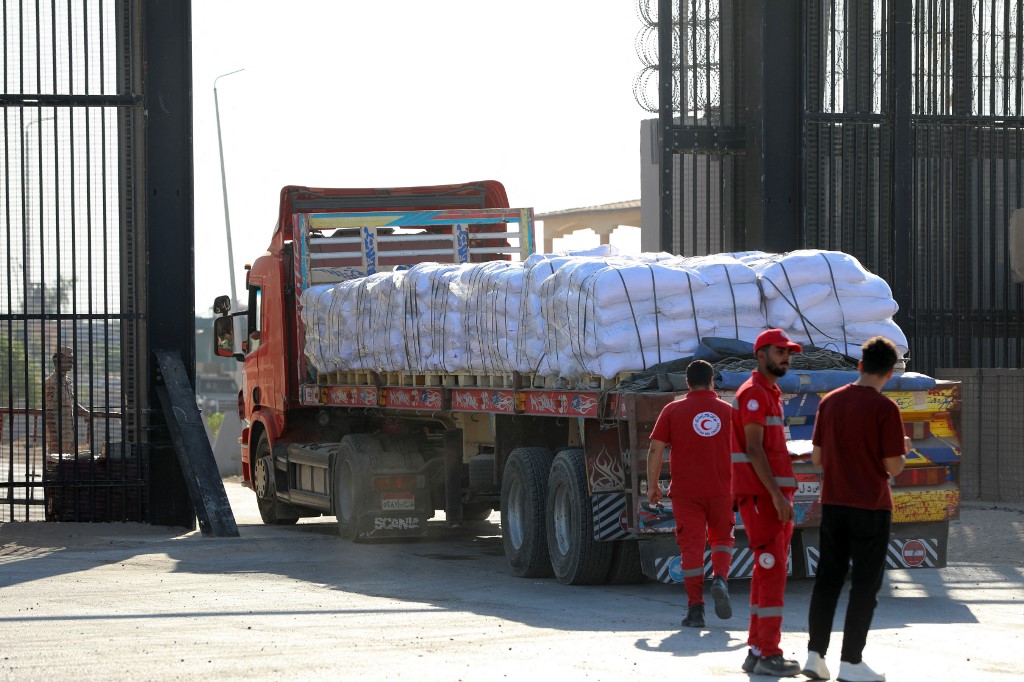Aid trucks from Egypt began moving towards the Gaza Strip on Sunday, 27 July, according to state-affiliated Al Qahera News TV, amid growing international pressure to address the worsening humanitarian conditions in the enclave.
The convoy, carrying food, flour, and infrastructure supplies, crossed through the Rafah border, a critical entry point for humanitarian relief as Gaza continues to face a near-total blockade.
This comes as the Israeli military announced new “humanitarian corridors” and “pauses” aimed at allowing aid convoys into the area. However, no specific locations for the pause were identified in the statement issued by the Israeli Foreign Ministry.
Meanwhile, humanitarian conditions in Gaza continue to deteriorate. The local health ministry reported dozens of deaths over the weekend, including cases of starvation. The number of hunger-related fatalities has reached at least 127 since the conflict began in October, with children making up the majority of these deaths.
International aid agencies and United Nations officials have repeatedly warned that current deliveries, including airdrops, fall far short of addressing the scale of the need. Humanitarian organisations continue to call for the full and sustained opening of land crossings to enable large-scale assistance and prevent further civilian suffering.
Egypt has repeatedly stressed the need for safe and unimpeded access for aid deliveries. Sunday’s convoy is part of ongoing efforts to mitigate the crisis, as shortages of food, medicine, and critical infrastructure continue to affect civilians across the territory.
According to a report by the Integrated Food Security Phase Classification (IPC), nearly 500,000 people in Gaza were facing famine-level hunger (IPC Phase 5), with nearly the entire population experiencing severe food insecurity.
By the end of May, over 1,000 Palestinians had reportedly been killed while seeking food. Many of the deaths occurred at privately-run distribution points, which the United Nations has criticised for lacking adequate safety measures.







Comments (0)